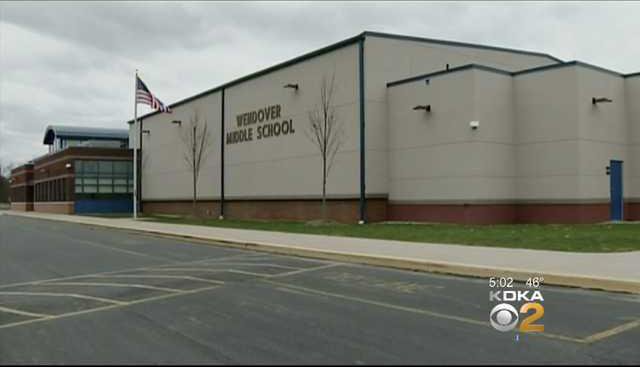A middle school in Pennsylvania canceled classes after a student sleepwalked into the building on Wednesday morning.
According to the Associated Press, the seventh-grade student called 911 at about 2:30 a.m. to inform police that he had sleepwalked into Wendover Middle School, which sits in Hempfield Township, Pennsylvania.
Police said the student entered the school through a window.
It appears he went through a screen in the window and got himself in the school. He was in the school about 15 minutes, trooper Stephan Limani, of Pennsylvania State Police, told KDKA-TV. He believes he was sleepwalking and went to the school.
On Wednesday, the Hempfield Area School District canceled classes amid security concerns. Police swept through the building throughout the day.
Classes resumed on Thursday, according to the AP.
Police said the incident isnt related to a separate arrest earlier this week when a student allegedly threatened to shoot another student.
A couple days prior, we did have a male student verbally threaten a female student, saying he was going to shoot her, Limani said.
According to Fox News, the student accused of making the threat was arrested and sent to Westmoreland County Juvenile Detention Center.
The school will continue to increase security as it investigates why the sleepwalking student entered the building.
In light of the recent events, an added police presence will be at Wendover Middle School tomorrow and counselors will be available to talk with students regarding school violence and safety, as needed, Superintendent Tammy W. Wolicki said in a statement. Additionally, the PA State Police have indicated that they are striving to have an added presence at all district schools. This provides an opportunity for students to see law enforcement within the schools and to promote a sense of safety.
According to the Associated Press, the seventh-grade student called 911 at about 2:30 a.m. to inform police that he had sleepwalked into Wendover Middle School, which sits in Hempfield Township, Pennsylvania.
Police said the student entered the school through a window.
It appears he went through a screen in the window and got himself in the school. He was in the school about 15 minutes, trooper Stephan Limani, of Pennsylvania State Police, told KDKA-TV. He believes he was sleepwalking and went to the school.
On Wednesday, the Hempfield Area School District canceled classes amid security concerns. Police swept through the building throughout the day.
Classes resumed on Thursday, according to the AP.
Police said the incident isnt related to a separate arrest earlier this week when a student allegedly threatened to shoot another student.
A couple days prior, we did have a male student verbally threaten a female student, saying he was going to shoot her, Limani said.
According to Fox News, the student accused of making the threat was arrested and sent to Westmoreland County Juvenile Detention Center.
The school will continue to increase security as it investigates why the sleepwalking student entered the building.
In light of the recent events, an added police presence will be at Wendover Middle School tomorrow and counselors will be available to talk with students regarding school violence and safety, as needed, Superintendent Tammy W. Wolicki said in a statement. Additionally, the PA State Police have indicated that they are striving to have an added presence at all district schools. This provides an opportunity for students to see law enforcement within the schools and to promote a sense of safety.








